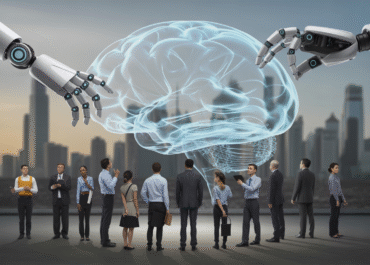Hey Siri, Am I Okay? : AI tools are being trained to detect suicidal signals
In an increasingly interconnected world, our smart devices have become trusted companions, answering questions, managing our schedules, and even helping us stay healthy. But what if they could do more than just play music or set reminders? What if your smart assistant could detect subtle signs of distress and potentially even save a life?
This is the cutting-edge frontier of AI development: training artificial intelligence to identify suicidal ideation through real-time data analysis. As mental health challenges continue to rise globally, the proactive detection of suicidal signals in user interactions represents a groundbreaking approach to suicide prevention, offering a new lifeline in critical moments.
The Mechanics of AI-Powered Detection
Unlike traditional methods that often rely on self-reporting or direct outreach, these advanced AI systems are designed to identify distress signals from a vast array of real-time digital interactions. This isn’t about invasive surveillance, but rather the analysis of subtle, often unconscious, indicators that might otherwise go unnoticed. AI models are being trained on anonymized datasets containing linguistic patterns, sentiment shifts, voice fluctuations, typing speed, and even patterns in search queries or app usage that are historically correlated with suicidal ideation.
The goal is to move beyond mere keyword detection, which can be prone to false positives, and instead understand the nuanced context and emotional state conveyed through communication. By learning to identify these complex patterns, AI can potentially flag individuals exhibiting signs of severe distress long before they might explicitly vocalize their pain, enabling earlier intervention.
A Proactive Lifeline in Crisis Prevention
The promise of this technology is immense. For many struggling with suicidal thoughts, reaching out for help can be an insurmountable barrier. Isolation, stigma, and the overwhelming nature of their distress often prevent them from seeking traditional support channels. AI offers a unique, always-on safety net, capable of recognizing distress signals even when an individual is unable or unwilling to express them directly.
By flagging these signals in real-time, the system can potentially trigger a series of predefined, compassionate responses—ranging from prompting a user to connect with mental health resources to alerting a designated trusted contact or, in severe cases, even emergency services. This proactive approach has the potential to bridge critical gaps in mental healthcare, transforming reactive crisis management into timely, life-saving intervention.
Navigating the Ethical Landscape and Challenges
While the potential benefits are profound, the development of such sensitive AI tools comes with significant ethical responsibilities. Paramount among these are privacy concerns, data security, and the potential for misinterpretation. Ensuring the highest standards of data anonymization, encryption, and explicit user consent is non-negotiable. Users must be fully aware of how their data is being used and have control over their privacy settings.
Furthermore, the accuracy of these AI systems is critical. False positives could lead to unnecessary alarm and erosion of trust, while false negatives could have tragic consequences. Therefore, robust validation, continuous refinement, and a clear understanding of algorithmic bias are essential. Crucially, these AI tools are intended to serve as an augmentation, not a replacement, for human empathy and professional care. The ideal scenario involves a human-in-the-loop approach, where AI identifies potential distress, but trained mental health professionals or trusted individuals provide the actual support and intervention.
As we look to the future, the integration of AI into mental health support systems holds incredible promise. With careful, ethical development and collaboration between technology experts, mental health professionals, and policymakers, AI could evolve into a vital partner in suicide prevention—a compassionate early warning system that helps ensure no cry for help, however subtle, goes unheard. The question «Hey Siri, am I okay?» might soon be met not just with a comforting voice, but with a system designed to genuinely understand and help.


